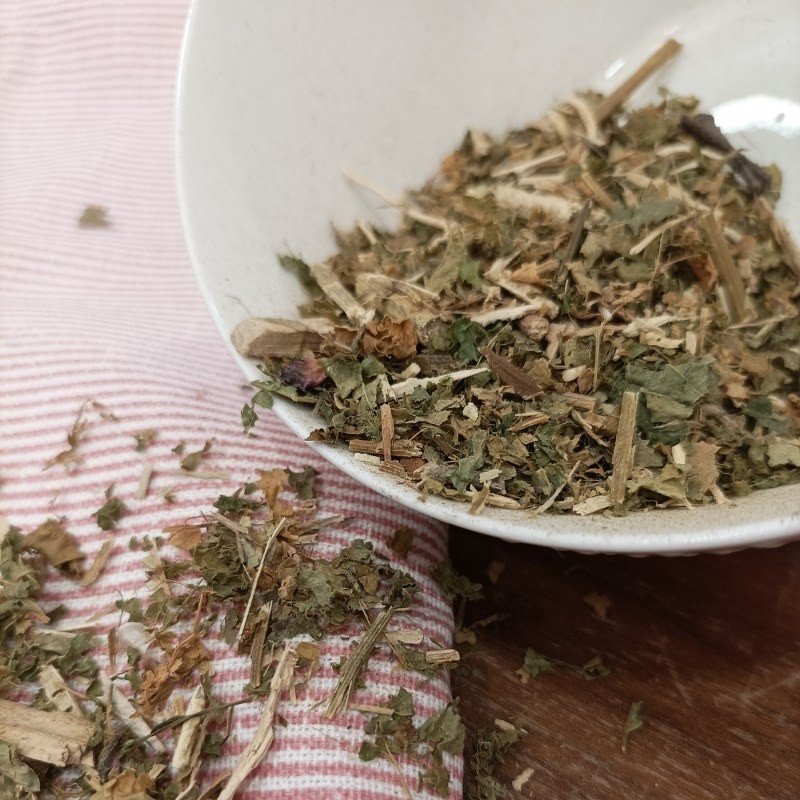A Beginner’s Guide to Guinea Hen Weed
Guinea Hen Weed (Petiveria alliacea) is a powerful medicinal herb that has been used for centuries in various traditional healing practices, particularly in the Caribbean, South America, and Africa. Also known by different names, such as Anamu or Garlic Weed, this herb has gained attention for its potential health benefits and therapeutic properties. In this beginner’s guide, we will explore the origins, uses, and potential benefits of Guinea Hen Weed, as well as safety considerations when using it.
Origins and Description:
Guinea Hen Weed is a perennial shrub that belongs to the Phytolaccaceae family. It is native to the tropical regions of the Americas and can be found in countries like Jamaica, Brazil, Colombia, and Peru. The plant typically grows up to a height of two to four feet and has elongated, lance-shaped, dark green leaves. Its small, inconspicuous flowers and greenish-white inflorescence make it less visually striking, but it is the underground roots and leaves that hold the key to its medicinal value.
Traditional Uses:
Throughout history, Guinea Hen Weed has been a significant part of traditional medicine in various cultures. The indigenous people of the Amazon rainforest, as well as the Caribbean and parts of Africa, have used this herb for its therapeutic properties. It is known to have antiviral, antibacterial, anti-inflammatory, and analgesic effects.
The traditional uses of Guinea Hen Weed include:
- Immune Support: It is believed to enhance the immune system, making it useful in combating infections and supporting overall health.
- Pain Relief: The herb’s analgesic properties may help alleviate pain associated with conditions like arthritis, headaches, and muscle soreness.
- Digestive Health: Guinea Hen Weed has been used to aid digestion and soothe stomach discomfort.
- Respiratory Issues: In some cultures, it is employed to relieve respiratory problems like coughs, bronchitis, and asthma.
- Cancer Support: Preliminary research has shown that certain compounds in Guinea Hen Weed might have potential anti-cancer properties, although more extensive studies are needed.
- Insect Repellent: Some communities use the herb as a natural insect repellent.
Health Benefits and Modern Research:
While traditional knowledge about Guinea Hen Weed has been passed down through generations, modern science has started to investigate its potential health benefits. Some research and studies have explored its pharmacological properties and bioactive compounds. However, it is essential to note that much of the available research is still in its early stages, and more studies are required to establish its efficacy and safety conclusively.
Some of the areas of interest in current research include:
Anticancer Potential: Certain compounds found in Guinea Hen Weed, such as dibenzyl trisulfide, have exhibited anti-cancer properties in laboratory studies. They appear to inhibit the growth of cancer cells and induce apoptosis (programmed cell death). However, these findings are only preliminary, and Guinea Hen Weed should not be considered a standalone treatment for cancer.
- Antimicrobial Properties: Studies have shown that the herb possesses antimicrobial activity against various bacteria and viruses, making it a potential candidate for future drug development.
- Anti-Inflammatory Effects: Guinea Hen Weed has demonstrated anti-inflammatory effects in animal studies, which may be beneficial for managing inflammatory conditions.
- Immunomodulatory Activity: Research has indicated that the herb may have immunomodulatory properties, which means it could help regulate the immune system’s response.
Safe Usage and Precautions:
While Guinea Hen Weed has shown promising medicinal properties, its usage should be approached with caution. Before incorporating it into your health regimen, consider the following precautions:
Consult a Healthcare Professional: If you are considering using Guinea Hen Weed for any health condition, it is crucial to consult a qualified healthcare professional first. They can help determine if it is suitable for your specific health needs and provide appropriate dosage recommendations.
Potential Side Effects: Like any medicinal herb, Guinea Hen Weed may cause side effects in some individuals. These may include gastrointestinal upset, skin irritation, or allergic reactions. Discontinue use and seek medical attention if any adverse reactions occur.
Pregnancy and Breastfeeding: Pregnant and breastfeeding women should avoid Guinea Hen Weed, as its effects on these conditions have not been adequately studied.
Drug Interactions: Guinea Hen Weed may interact with certain medications, including blood thinners and immunosuppressive drugs. If you are taking any medications, discuss its use with your healthcare provider to prevent potential interactions.
Dosage Considerations: Since research on Guinea Hen Weed is still limited, there is no established standard dosage. Always follow the guidelines provided by a healthcare professional or the product’s manufacturer.
Conclusion:
Guinea Hen Weed is a fascinating medicinal herb with a rich history of traditional use and promising modern research. While its potential health benefits are intriguing, it is essential to approach its usage with caution and seek guidance from healthcare professionals. As the scientific community continues to explore its properties, we may gain a better understanding of Guinea Hen Weed’s role in complementary and alternative medicine. Always prioritize your health and make informed decisions when considering natural remedies like Guinea Hen Weed.







